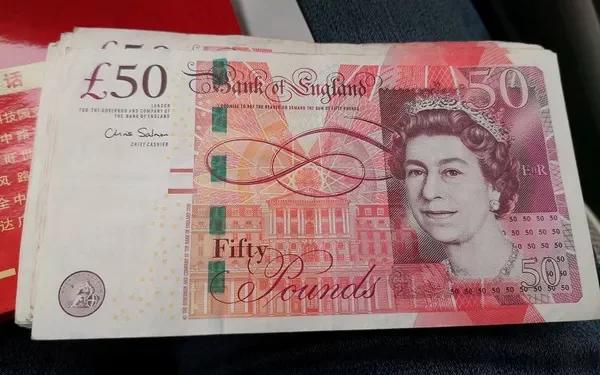In the realm of international finance, currency exchange rates play a pivotal role in facilitating global transactions and determining the relative value of currencies. For individuals or businesses seeking to convert currencies, understanding the factors influencing exchange rates, as well as the associated financial, legal, and economic implications, is crucial. This article delves into the intricacies of converting 500 pounds to dollars, examining current exchange rates, conversion calculations, factors influencing exchange rates, forecasts and trends, financial advice, legal and tax implications, economic indicators, and the global market impact.
Current Exchange Rate:
The exchange rate between the British pound (GBP) and the United States dollar (USD) is subject to fluctuations influenced by various factors, including economic indicators, geopolitical events, and market sentiment. As of April 29, 2024, the exchange rate stands at 1.25. This means that for every 1 pound, you would receive 1.25 dollars. Therefore, 500 pounds would equate to 626.15 dollars.
Conversion Calculation:
To calculate the value of 500 pounds in dollars, one must multiply the amount in pounds by the current exchange rate. Mathematically, the calculation is as follows:
500 pounds×1.25=626.15 in dollars
Factors Influencing Exchange Rates:
Several factors influence exchange rates, including:
Interest Rates: Central bank policies, such as interest rate adjustments, can impact currency values. Higher interest rates often attract foreign investment, strengthening the currency.
Economic Performance: Strong economic indicators, such as GDP growth, employment rates, and inflation levels, can bolster a currency’s value, while weak economic data may lead to depreciation.
Political Stability: Political stability and government policies play a significant role in currency valuation. Political turmoil or uncertainty can undermine confidence in a currency.
Trade Balance: A country’s trade balance, reflecting the difference between exports and imports, influences currency demand. Surplus nations typically have stronger currencies.
Market Sentiment: Investor sentiment and market speculation can cause short-term fluctuations in exchange rates, as traders react to news and events.
Financial Advice:
For individuals or businesses engaging in currency exchange, prudent financial management is essential. Here are some tips:
Monitor Exchange Rates: Stay informed about exchange rate movements to capitalize on favorable rates.
Consider Timing: Timing currency conversions strategically can mitigate risks and maximize returns.
Diversify Currency Holdings: Diversifying currency holdings can hedge against exchange rate volatility.
Seek Professional Guidance: Consult with financial advisors or currency specialists to develop a comprehensive currency strategy aligned with your financial goals.
Legal and Tax Implications:
Currency exchange transactions may have legal and tax implications, depending on jurisdiction and the nature of the transaction. It’s essential to consider:
Regulatory Compliance: Ensure compliance with relevant regulations governing currency exchange transactions.
Tax Treatment: Understand the tax implications of currency conversions, including potential capital gains or losses.
Documentation: Maintain accurate records of currency transactions for tax reporting and regulatory purposes.
Economic Indicators:
Key economic indicators provide insights into currency valuation and overall economic health. Some critical indicators to monitor include:
Gross Domestic Product (GDP): GDP growth reflects economic performance and can influence currency values.
Inflation Rate: Inflation erodes purchasing power and may weaken a currency if not adequately controlled.
Unemployment Rate: Low unemployment rates signal a robust economy and may strengthen a currency.
Interest Rates: Central bank interest rate decisions impact currency values and financial markets.
Global Market Impact:
Exchange rate movements reverberate across global markets, affecting trade, investment, and economic stability. Fluctuations in currency values can:
Impact Trade Competitiveness: A strong currency may make exports more expensive and imports cheaper, affecting trade balances.
Influence Investment Flows: Investors may allocate capital based on currency valuations and perceived economic prospects.
Affect Corporate Profits: Multinational corporations are vulnerable to currency fluctuations, as exchange rate movements impact revenue and expenses.
Conclusion:
Converting 500 pounds to dollars entails understanding the current exchange rate, conducting conversion calculations, and considering various factors influencing exchange rates. Economic indicators, geopolitical events, and market sentiment all contribute to currency valuation and exchange rate movements. Financial advice, legal considerations, and awareness of tax implications are essential for individuals and businesses engaging in currency exchange transactions. While forecasting exchange rate trends can be challenging, staying informed and adopting prudent financial strategies can help mitigate risks and capitalize on opportunities in the dynamic world of currency exchange.
Related Topics:























